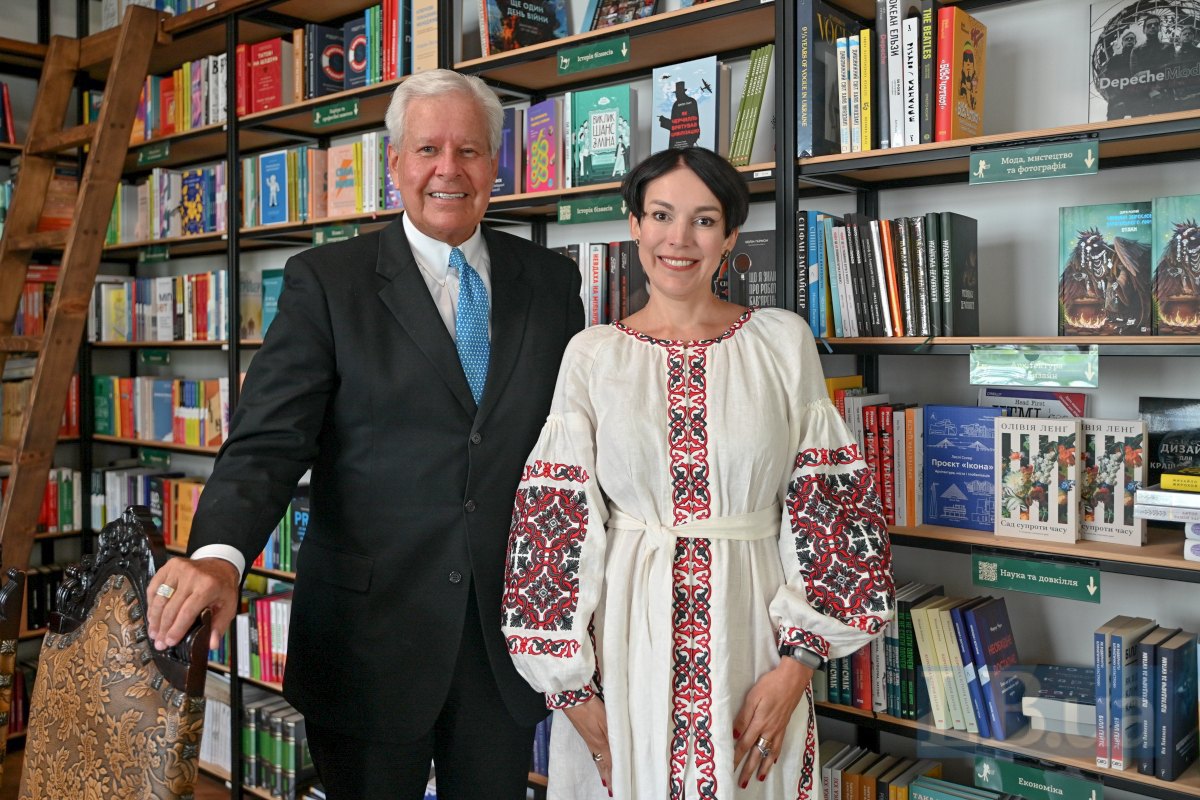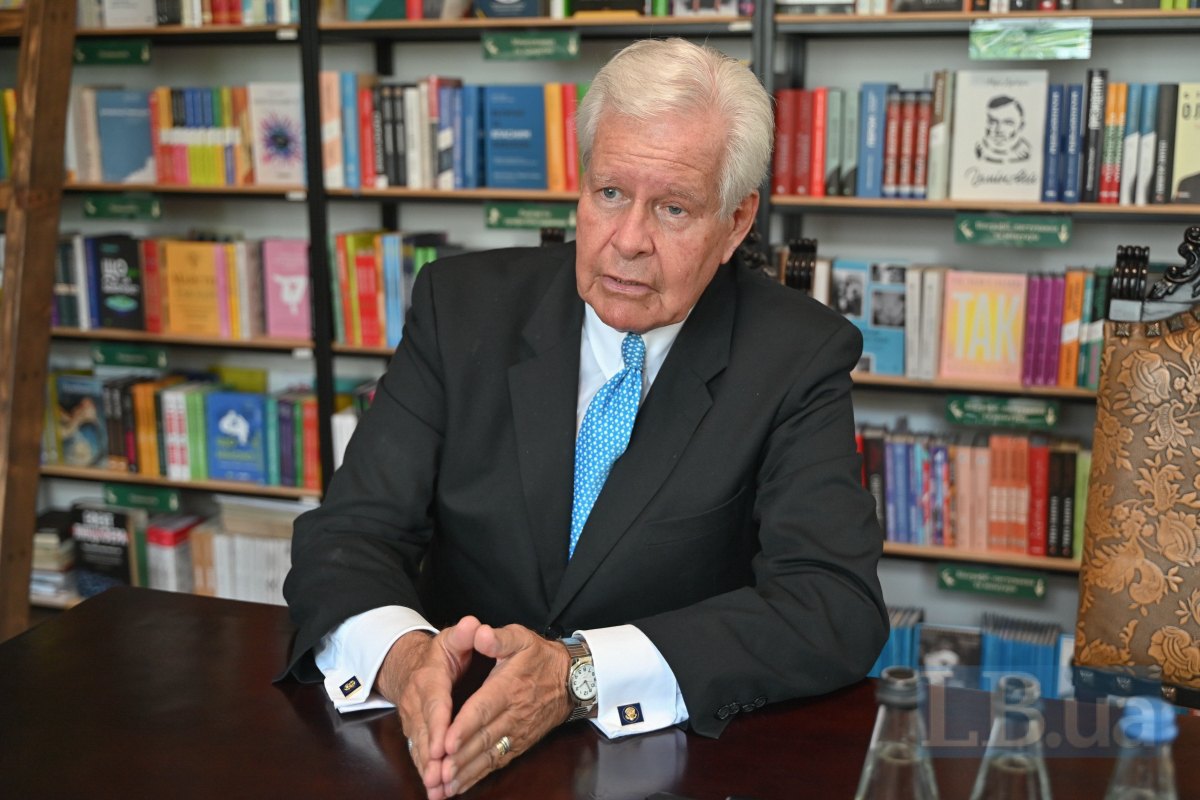
“Trump will never be awarded the Nobel Peace Prize. Because Trump cares about peace — and we are going to achieve peace.”
You have extensive diplomatic experience, particularly in Eastern Europe and the Balkans, where you played a significant role in establishing dialogue between conflicting parties. How do you assess the negotiation process initiated by President Donald Trump in the context of Russia’s war against Ukraine?
Trump is not a diplomat, so he does not think in terms of decades. He thinks in terms of hours and days. Let me give you an example.
He was in the Middle East, where we have many friends. During the Obama and Biden administrations, America was effectively loyal to Iran. Other Arab countries did not like this, so they supported Trump. When Trump arrived in the first 50 days after his inauguration, everyone was glad to see him. But the situation in Syria was a cause for concern. It was then, after 45 years in power, that the Assad family fled to Russia. Ahmed al-Sharaa, a representative of Al-Qaeda and the revolutionaries, took over the country. And everyone was concerned about what kind of person he would be.
Donald Trump, as a businessman, said, “Why don’t you ask him?” They replied that they did not know how to do that. Trump turned to Saudi Arabia and said, “You have a plane, bring him here.” The Saudis brought him.
“Are you with Iran, China and Russia?” Donald Trump asked Ahmed al-Sharaa. He was wearing a suit and tie, and everyone else was dressed in suits as well. He looked around and said, “I’m with them.” Trump replied, “Okay.” The Saudis then said, “We will lift the sanctions,” and the UAE added, “We will invest.” Ahmed al-Sharaa was put on a plane and taken home. In three hours, Donald Trump achieved what would have taken diplomats 30 years of negotiations.
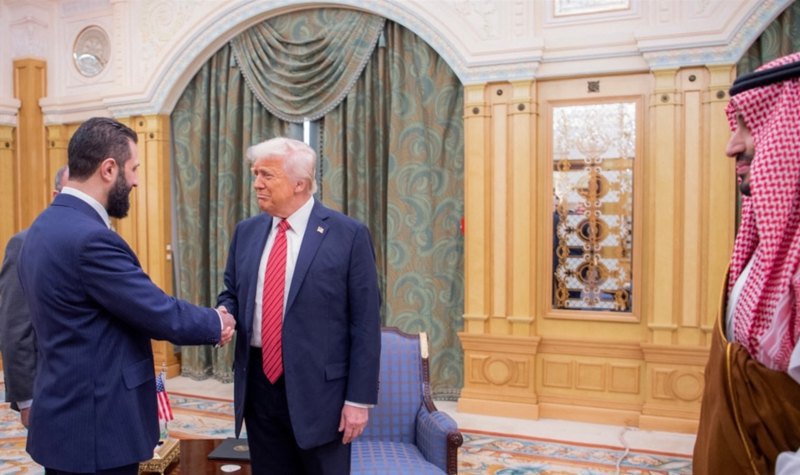
Now, in the context of Russia’s war against Ukraine since 22 February: 27 member states of the European Union, 27 foreign ministries, 27 foreign ministers, together with US President Joe Biden — none of them picked up the phone to talk to Putin.
Donald Trump comes along and says, “What are you doing?” Putin replies, “We want a piece of this.” Trump says, “No, that’s not right.” Putin responds, “Well, we’ll work something out.” Trump assumes everything is settled, but Putin attacks Ukraine again behind his back. Then Trump says, “Okay, if that’s your solution, it will be different.”
He convinces the European Union to stop buying gas from Russia — that is $300 billion a year in hard currency that was fuelling the Russian economy. Everyone wants the US to defend Ukraine. Europeans want us to defend it, but at the same time, they are the ones financing this war. So Trump says, “Stop it.” And they stop.
Then India says, “We’re still going to buy petrol from Russia.” Donald Trump replies, “Fine, then you will get a 25% tariff on all goods from India.” The very next day, Putin calls and says, “Let’s talk.” They meet in Alaska.
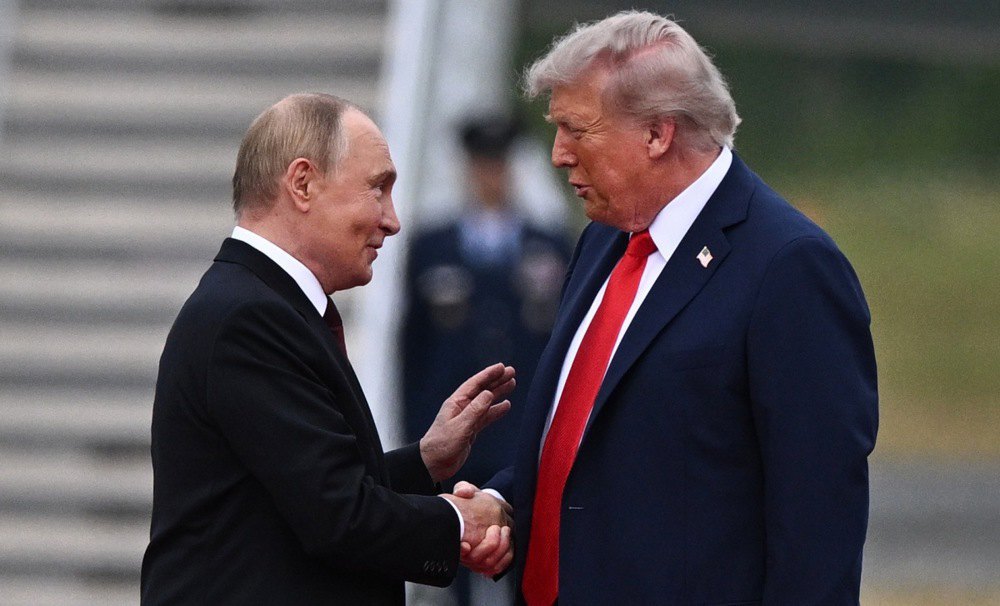
For those interested in history: Russia sold Alaska to the United States because of its financial exhaustion and vulnerability after the Crimean War. The irony is that it was Crimea that gave the US Alaska.
And so Russia says to Trump: “I don’t want NATO on my doorstep.” Trump replies: “Fine. But I need guarantees that you won’t do what you have already done again. We will have to assemble a coalition of forces to support Ukraine, and if you try something like that again, we will all declare war to defend Ukraine.”
And Putin says, “Okay, I agree.” That is 90% of the whole deal.
The next step is what to do with the occupied territories. And it seems that Putin thinks it is beneficial for him to oppress Ukraine even more. I think this is a big mistake. Because Trump is not to be trifled with.
Putin used to be able to manipulate Europe’s weakness and Joe Biden’s incompetence. But now he is dealing with someone else — a New Yorker who dealt with the mafia and trade unions in New York. He knows how to deal with those who look you in the eye and lie. And he knows what to do with them. All the trump cards are now in America’s hands. China needs the American market first and foremost. Trump does not care about that.
As soon as he decides to isolate Putin, he will isolate Russia from China. He has already done this with Iran, and next will be India, followed by the European Union. So it is only a matter of days, and the degree of Putin’s resistance will depend on how hard Trump “tightens the screws.” No one else in the world will do this.
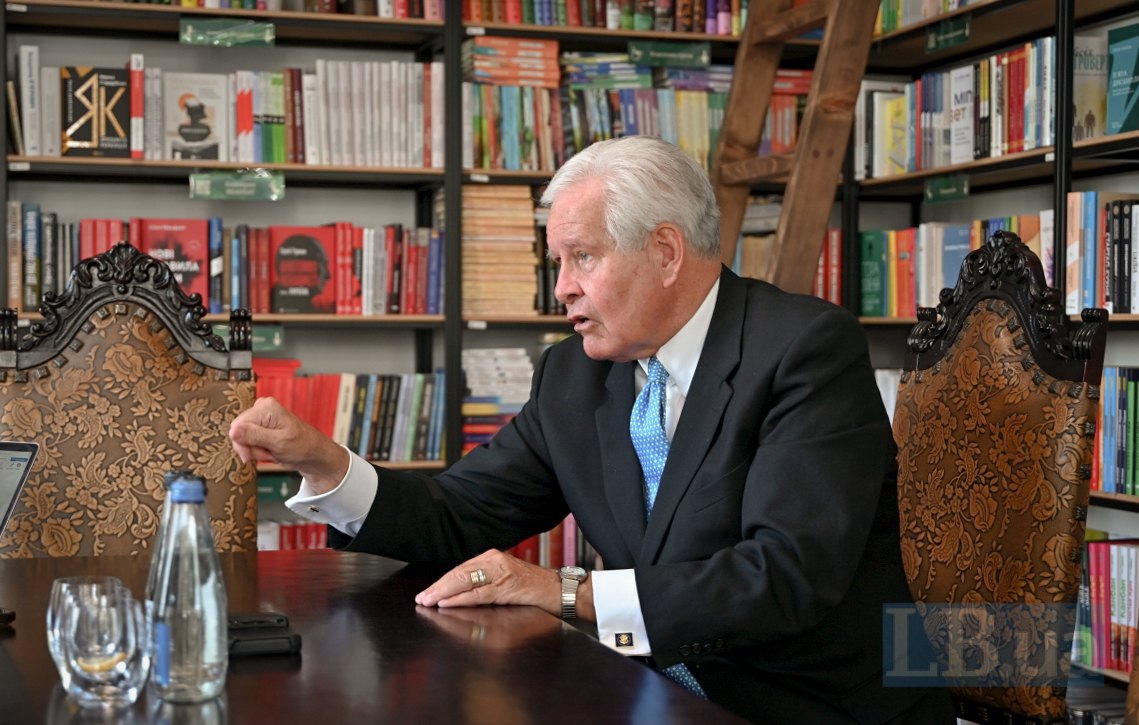
But Trump’s strategy is criticised both in Ukraine and in the United States for not putting pressure on Russia.
Yes, when Putin entered Crimea, Obama did nothing at all — and he was awarded the Nobel Peace Prize.
In 2021, Putin pulled troops along the entire border — and anyone with even a modicum of intelligence could see that something was about to happen. Biden did nothing. And in the end, he said, “Well, it all depends on the scale of the invasion.” In diplomatic language, this meant: “Please cross the border.” Trump would never have allowed this.
I have told people — and I will answer this in other questions as well — that people do not like a strong America. They want America to take strong action, but they do not like it when America is strong.
Why?
I do not know.
When Ronald Reagan defended Berlin — Berlin was surrounded by a communist wall, and you could be killed if you tried to escape — 500,000 Berliners protested against Reagan. In France, when Reagan wanted to get rid of nuclear weapons, people protested, calling him a military provocateur.
They knew that Ronald Reagan would fight communism and make America strong — the left hated that. Donald Trump is doing the same thing. Donald Trump is making America stronger and the left weaker. China is weakening, Russia is weakening, Iran is completely out of the game — and this irritates the left.
When people ask me, what about the Nobel Peace Prize? I say: he [Trump] will never get it. Never. They gave it to Obama, who dropped bombs on seven countries — 26,000 bombs. They gave it to him. But they did not give it to Reagan. And they will not give it to Trump either. Because Trump cares about peace — and we are going to achieve peace.
I have already explained what happened in three and a half years under Biden’s leadership — absolutely nothing. But as soon as Trump starts to act, he is immediately criticised. And when he brings peace — I promise you — when he achieves peace, they will still complain and criticise the peace agreement itself. I do not know why that is, but I can promise you: they will say it is a failure.
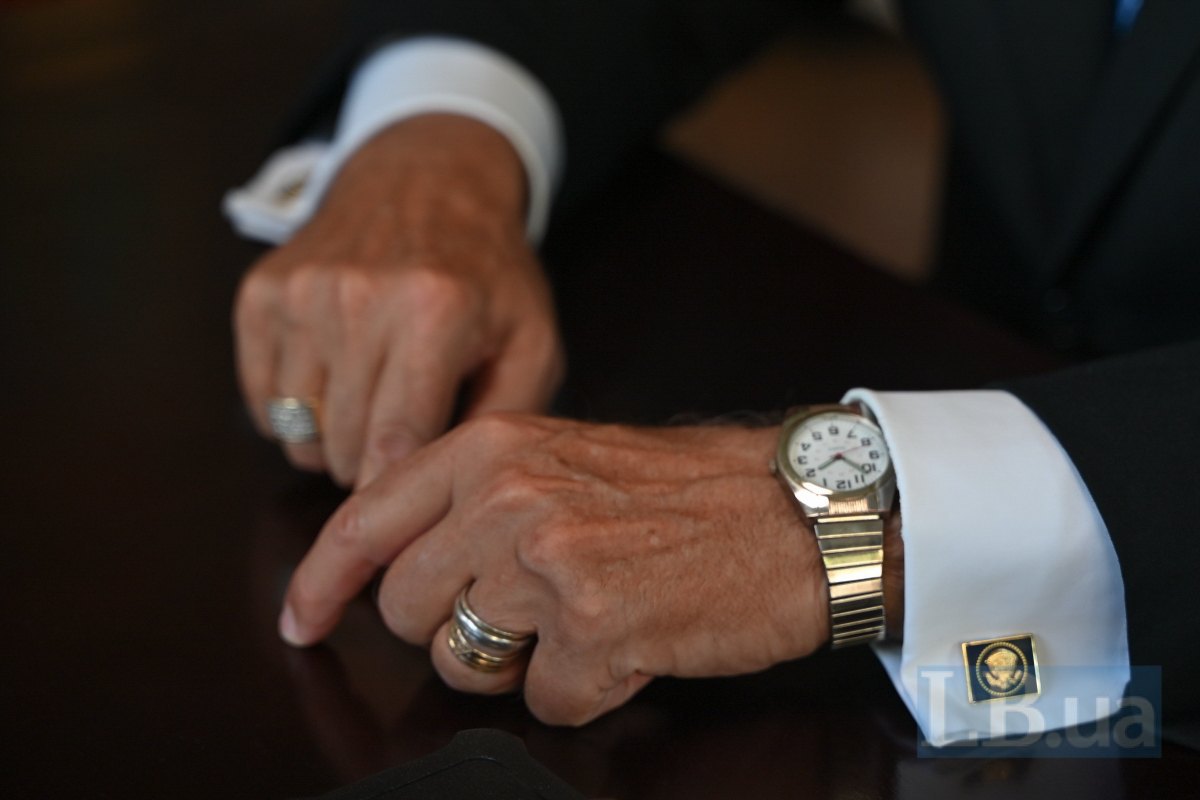
When will that happen?
I think it will happen before the end of the year. That’s for sure. Before the end of the year.
An interesting prediction. We will remember it, as they say.
“Putin manipulated almost everyone. But he won’t be able to manipulate Trump.”
You mentioned history. During World War II and the Cold War, the United States skilfully used a combination of diplomacy and force. How can we apply this today in the situation with Ukraine?
This is exactly what is happening now. And so, instead of telling each other how brave we are to attend the G7 or G20 summits and pass resolutions ‘against’ — none of this matters. Real action is what matters. Trump, for example, looks people straight in the eye, does not speak indirectly, does not speak ‘through someone else.’ He addresses people directly — and smiles while doing so.
…In the late 1970s, the United States was in decline. Jimmy Carter was the worst president in American history.
Not Obama? Carter?
No, no, Carter was much worse. Significantly worse.
At that time, the US had 18% inflation, interest rates of 22%, and the army was in a state of complete disarray. And in 1980, the head of the Soviet Union said: ‘By the end of this decade, we will be able to impose our will anywhere on the planet, because the balance of power — economic, military and political — is on the side of socialism and communism.’
During Jimmy Carter’s presidency, more countries switched to communism than under any other president since Truman, that is, since World War II. America was in decline, and the Soviet Union was on the rise.
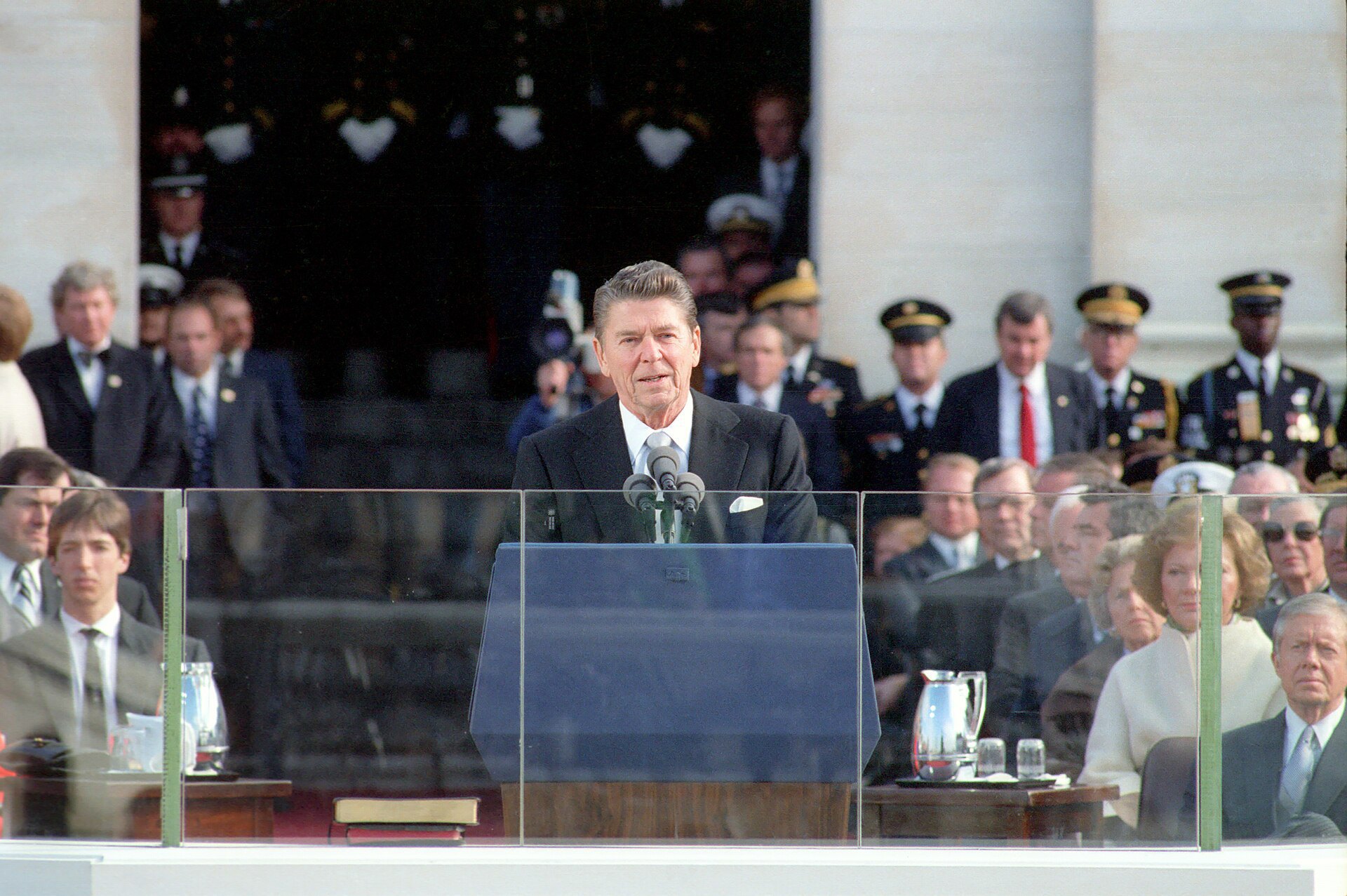
But on election day, Ronald Reagan addressed the nation and said, ‘There is nothing in this country that cannot be cured by good leadership.’ And so the country changed its leader — inflation fell sharply, interest rates dropped, and the economy began to grow at a rapid pace. He strengthened the army, and the world began to return to balance.
When Brezhnev died, he was replaced by weak leaders — Andropov, then Chernenko. And finally — Gorbachev. He was 54 years old, and Reagan was almost 70. And the media — especially the left-wing media in Europe — began to play up the theme of how smart, educated, and promising Gorbachev was. The question arose: would the ‘old’ American president be able to cope with this ‘brilliant’ man with two doctorates in communist ideology?
Their first meeting took place in Geneva. The scene was described as follows: Gorbachev arrived in a large coat and hat — looking very Soviet. Reagan appeared in front of a fireplace, wearing a black jacket — as if he had just stepped out of Hollywood. He approached, taller and stronger than Gorbachev, took him by the hand, turned him towards the camera — and the photo clearly shows the ‘big guy’ and the ‘little guy’. This greatly upset the press, as they had hoped that Gorbachev would appear dominant.
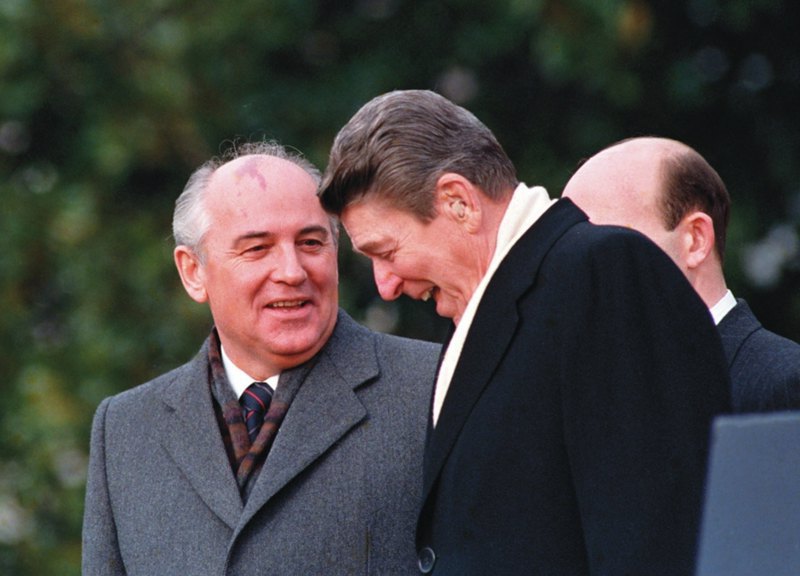
But what no one knew for another 10–12 years after that meeting was that Reagan — who had a boathouse at his villa on Lake Geneva — had made sure it was well guarded. And when Gorbachev was about to get into the car for a two-hour break before dinner, Reagan asked: ‘Can we talk, just you and me?’
The interpreter asked Gorbachev, who agreed. Reagan said, ‘Okay,’ and pointed to the boathouse. They went down there, just the four of them: Reagan, Gorbachev and two interpreters. They sat down in front of the fireplace, where a fire was burning.
Reagan said: ‘There are only two people in the world who can completely destroy life on the planet. Two people who can either destroy or bring peace.’
And, of course, that is exactly what communists love to hear. They love to talk about peace because they believe that for democracies, “peace” means “surrender.” And so he says all these platitudes — about peace, about prosperity, about how we can work together and all that.
And then he adds:
‘But don’t you even try. If you try, I will destroy you. Do you understand me? The United States will crush you. Is that clear?’ Pause. ‘Okay, let’s go to dinner.’
They got up and left.
He made it clear who he was dealing with. I look friendly, I smile, I am polite, but I know what I am doing. It is very similar to Donald Trump’s approach. He smiles, jokes, acts friendly, but it is better not to cross the line. And Putin will understand this very soon. He has already manipulated almost everyone, but he will not be able to manipulate this man.
Between us, those who support Ukraine, I will say: the next few months will be difficult. Trump hates death. He really hates everything related to death. He does not like funerals, he does not like war. And he wants it all to stop. He keeps saying, “I just want to stop this. We’ll discuss everything later, but first, let’s stop this.”
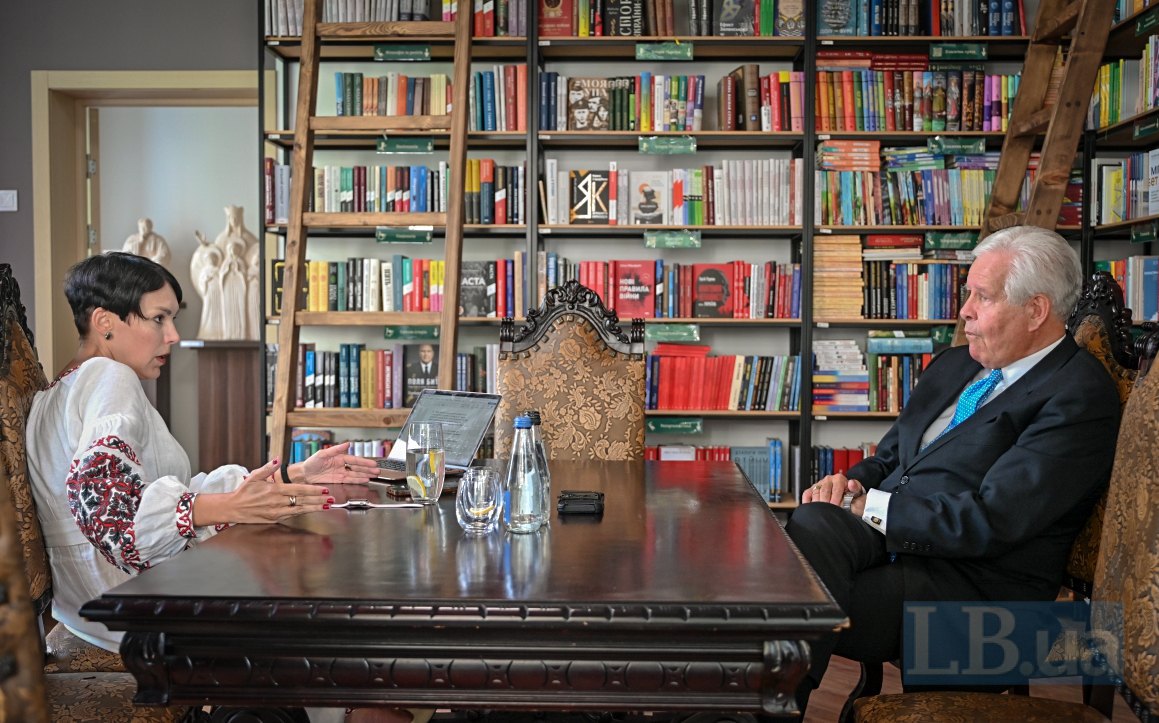
But Putin does not want to stop. And in the next few months, unfortunately, this will mean even more casualties for Ukraine.
However, in the long term, Europe — which has never wanted to take responsibility — will finally start to act. Even Germany and Switzerland are already helping Ukraine. And all because Trump is leading the way. Trump is going to see this through to the end.
In two or three months, if Putin continues to play this game, when it comes to the final negotiations, Ukraine will be much stronger than it is now. Every day of Putin’s procrastination is not in his favour. He is a fool if he does so. If he were smarter, he would have agreed to peace back in Alaska.
Unfortunately, new lives are being lost every day, but commitments and investments from Europe and the US are increasing. And Putin is not benefiting from this.
Let’s recall another historical fact — the collapse of the Soviet Union. You were an observer at the 1989 elections in Poland, which effectively heralded the fall of the communist regime in the country and sent a signal to other socialist republics. Do you think the scenario of Russia’s collapse, which is being discussed more and more actively, is possible?
At that time, people in Poland voted for a non-communist leader in a communist country — something that had never happened before since the Bolsheviks came to power in November 1917. Many people think that they opposed the tsar, but no — the tsar left in April.
During Kerenskiy’s government, Russia was a republic, but then Lenin was sent from Germany and effectively financed to overthrow the government. The Bolsheviks came to power by force. They literally shot their way to it. And from that moment until August 1989, no country was able to break away from communism. That is, there was no precedent for deviation from the Soviet system. Therefore, when it happened — through a series of mistakes, which I can explain to you — it came as a shock to everyone.
…Let me explain. The authorities allowed demonstrations and strikes organised by Solidarity (Poles were dissatisfied with the economic situation, high prices, etc., which led to a wave of strikes across the country. — S.K.). But they did not strike by not coming to work. It was like when your children clean the garage — a lot of fuss, but nothing happens. People went to work, but did nothing. The country was simply falling apart because nothing was working. Solidarity effectively paralysed the system.
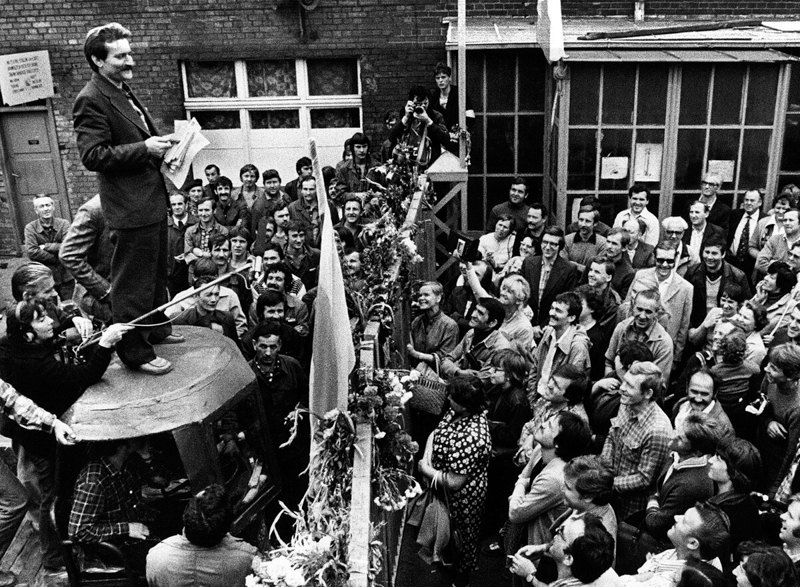
Then the authorities began negotiations [with the opposition] and allowed elections to part of the parliament. They agreed that two-thirds of the lower house (Sejm) and part of the Senate could be elected. And all this took place in the open — everyone could watch, including the international press. But when it came time for the Senate elections, and the Senate has 100 members, only communists could run — you either vote for or against. And so, the international press saw that 85% of voters voted against.
After that, journalists and observers declared: “This is not right! 85% against — these are not elections!” Solidarity continued to exert pressure. In the end, the authorities agreed to hold free elections to the Senate as well.
But someone in the Kremlin decided that they could handle these elections. They just needed to control the information: not allow the opposition on the radio or television, not publish them in newspapers, not allow rallies, not give them halls for meetings. Let them hold their elections. And that is what they did.
But the closer the elections got, the more demonstrations there were. In the end, the authorities agreed to give Solidarity 20 minutes on television — just once.
And so, on Sunday evening, the whole country watched television. That was the entire election campaign. In those 20 minutes, they said, “This is who you should vote for.” And they simply read out the names of all the Solidarity candidates. There were no posters, no newspapers, nothing. But when the names were announced, everyone wrote them down, copied them, and passed them on to each other.
On election day, the opposition won almost 100 out of 100 seats. Now the prime minister had no right of veto. And I could see that they had fallen into a trap, that they were in big trouble, but I could not convince anyone of this. Nevertheless, the vote took place in the Senate for the prime minister, and all these people — elected in the opposition elections — arrived on bicycles, dressed in farmers’ clothes. And the party officials were in grey suits. And they elected a non-communist leader in a communist country.
I turned around and said, “This cannot remain without consequences. This has never happened before. Either they will kill him, or communism as a political force in the world is dead. If people can voluntarily remove the pitchfork from their own throats, they will do so. Someone has to do something.”
In response, I heard, “Why not you?” I said, “All right.” I started applauding, and everyone started applauding.
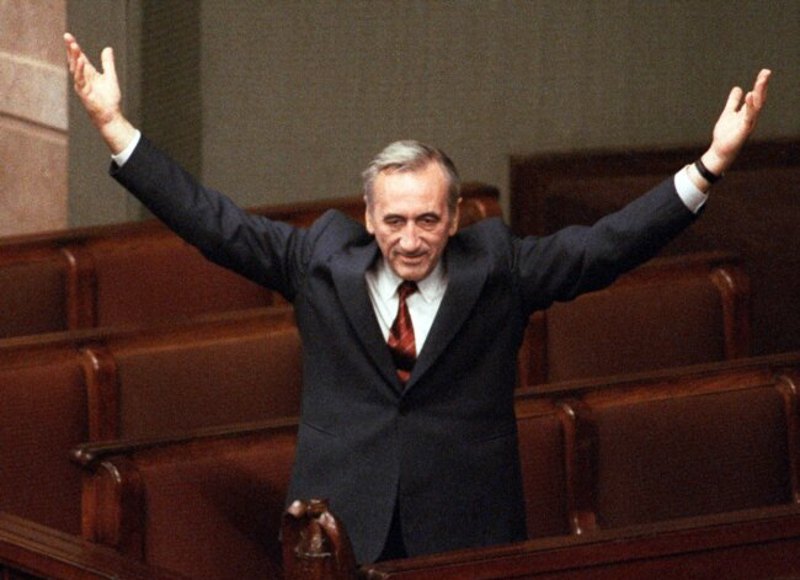
We ‘have buried’ Tadeusz Mazowiecki, who was elected prime minister from the opposition. We knew it was a critical moment. About six months earlier, another revolutionary leader had returned to the Philippines and was shot dead on the runway as soon as he landed. So we decided to act.
I convinced Bob Dole (American Republican politician. — S.K.), who was wounded during World War II in Italy — his right arm remained paralysed — explained to him that it was his wounded arm that mattered, that it was precisely because of it that he had been wounded in World War II, because Poland in 1939 was all about that. He agreed. Elizabeth Dole (American politician. — S.K.), Robert McEwen, Elizabeth McEwen were also with us. We decided to accompany Mazowiecki to the Soviet Union, to the Far East. We understood that if he was killed, it would be somewhere between Hungary and the USSR. So we accompanied him. And when we came out, all the microphones of the world were waiting for us.
And I said, “This is just the beginning. It will spread throughout Central and Eastern Europe, and we will not stop until we reach the very heart of the criminal system.”
The following week — bang, Hungary followed suit. Sixty days later — the [Berlin] Wall fell. And that was a decision that was probably made by Gorbachev.
When I finished my speech about how the world was changing and would never be the same again, someone from the embassy came up to me, tapped me on the shoulder and pointed across the street. There was the Soviet ambassador, leaning on his car and waiting for the Americans to leave. And that made me realise that they were not going to fight, because if they were, he would have come not with papers, but on a tank. So I realised then that everything was changing.
Later, the following year, during Yeltsin’s time, the situation changed completely.
Could this happen again? I think it is entirely possible. Governments are built either on fear and hatred or on love and trust. Totalitarian systems are based on fear — that is why they have secret police, repression and all that. Putin has his oligarchs who work with him. If someone gets in his way, he destroys them. But for three years now, they have not been able to refuel their yachts in the Mediterranean because of sanctions. And all these restrictions are starting to annoy them.
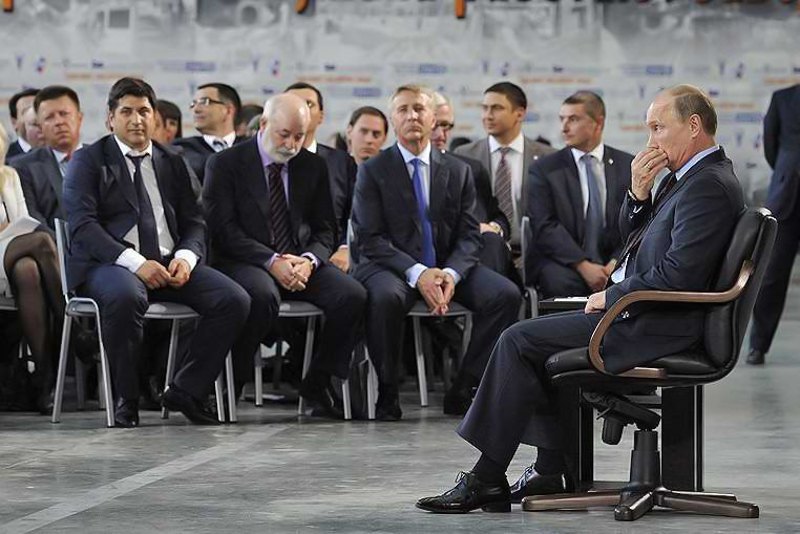
So, could the Russian government fall? I do not know for sure. But I think Putin is afraid that if he gives up now, after so many losses — soldiers, resources — it will be the end of him.
Is it possible to achieve peace without a change of regime in the Kremlin?
Yes. I think there is a possibility. I just do not know how thoroughly Putin has destroyed the opposition. I do not know how thoroughly he has eliminated everyone who was against him in recent years.
Almost to zero. But never mind that. Let’s return to the current situation and talk about a ceasefire. Is it important for real negotiations to begin that there be no fighting?
A ceasefire would certainly be better. But we cannot wait — waiting has not helped. We must start from there. But a ceasefire is more of a guarantee that the process will be long and real, rather than just lasting a few days.
There is no textbook on how to act in such situations. It is not a mathematical formula. It is working with people. What may work in one place will not necessarily work in another.
And I think Putin feels the same way as the ayatollahs in Iran: they are like riding a tiger and are afraid that the tiger will eat them if they get off. I think the world is still on our side in all these complex, isolated regions. Whether Putin can survive this, I do not know. I have heard from several experts that he will not, but I am not sure.
We are expecting a meeting, possibly between President Zelenskyy and Vladimir Putin. Which meeting do you think will be more effective: Putin and Zelenskyy, or Putin, Zelenskyy and Trump?
I think you can guess which one would be more effective.
What role do you think China will play in this process?
Fortunately, China has its own problems right now.
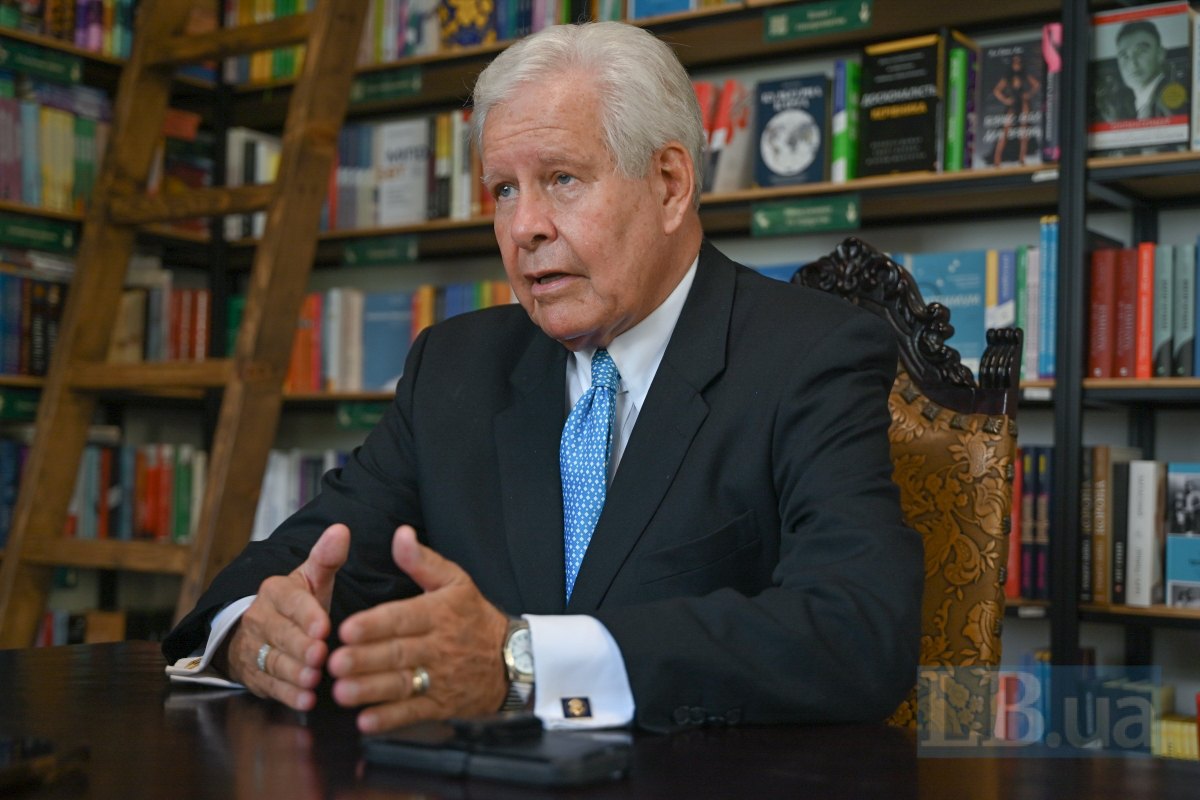
Problems? I thought China was the source of the problems.
No, they have big problems of their own: economic, demographic, on all sides. They are constantly trying to manoeuvre, but the situation is getting more complicated.
And here is the thing: some of us are quite aggressive about the fact that they are now trying to rectify the situation through propaganda or lectures, but nothing has happened in three years. Richard Nixon drove a wedge between China and Russia at the time. And since then, these two countries have been competing with each other to see who could negotiate better with the West. This created competition between them.
Only in the last three and a half years have these two — China and Russia — begun to act together again due to the incompetence of European and American leaders regarding Ukraine. There is a long-standing animosity between China and Russia over lands that once belonged to China but were seized by Russia in the 1890s under the Treaty of Aigun. (The former Chinese territory on the left bank of the Amur River was transferred to Russia. But in 2023, China’s state cartographic service marked the Russian island of Bolshoy Ussuriysky on the Amur River as Chinese territory on its map.)
But over the last three years, they have indeed been cooperating better than they have over the last thirty. And Donald Trump is responsible for dividing them. Note that he did not conclude a trade agreement with China — something that would have been tangible. He is more decisive with other countries — Europe, etc. But he asks the question: “Where do you stand?” If you continue to support Russia, we will not agree with that. He plays them like a pro.
And so it will be interesting to see what India does with oil. The US needs them less than they need the US. Donald Trump knows how to play his cards. And, as I said, I think it would be wise for Putin to try to reach a peace agreement in Alaska and draw the line, instead of pushing things further while all those who react painfully in France, Britain, Germany and other countries talk nicely but do nothing.
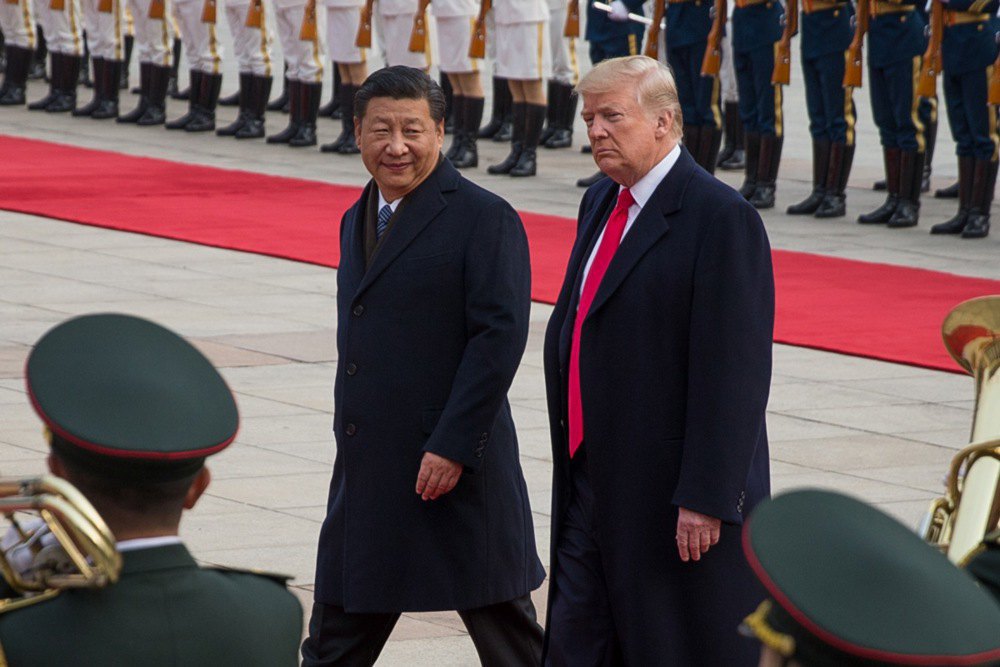
They are now starting to fall into line. And as Putin continues this game, loyalty grows. Trump is leading this process and, in my opinion, it will be best for Ukraine.
“Perhaps the agreement will be as follows: Ukraine will not become a member of NATO. It will have the best of both worlds: all the support of NATO, but none of the obligations.”
The organisation you head, the Council for National Policy, is one of the oldest and most influential in the American conservative movement. What is its role today, in the era of President Trump, when the conservative movement in the United States itself is undergoing a transformation?
It is like a chamber of commerce for the conservative movement. The chamber of commerce does not make shoes, but it has members who do. It does not sell cars, but its members trade in cars and other goods. The chamber is a collection of different businesses that work together because they cannot dictate to each other what to do.
It is the same with these independent organisations — Right to Life, Free Enterprise, Strong Defence, and so on. It is impossible to make them all act in the same way. How do you get them moving in the same direction? It was Ronald Reagan’s idea to create an association. And it is very important that this group does nothing. As soon as it begins to do something already being done by others, it ceases to serve its purpose. So, this is a gathering of conservative leaders that meets three times a year. And that is where the leadership of the conservative movement comes to speak. That is all.
It is interesting that Russia constantly uses the term “conservative values” in negotiations with the United States and other countries. And we must admit that it has achieved some success in this, although what it understands by “conservatism” has nothing to do with actual conservative values. Why is it successful?
I, for example, do not consider totalitarianism to be conservative. I consider myself a conservative. Because for me, conservatism is a spiritual and theological system. And they [the Russians] do not respect life. Therefore, I do not consider this to be conservatism.
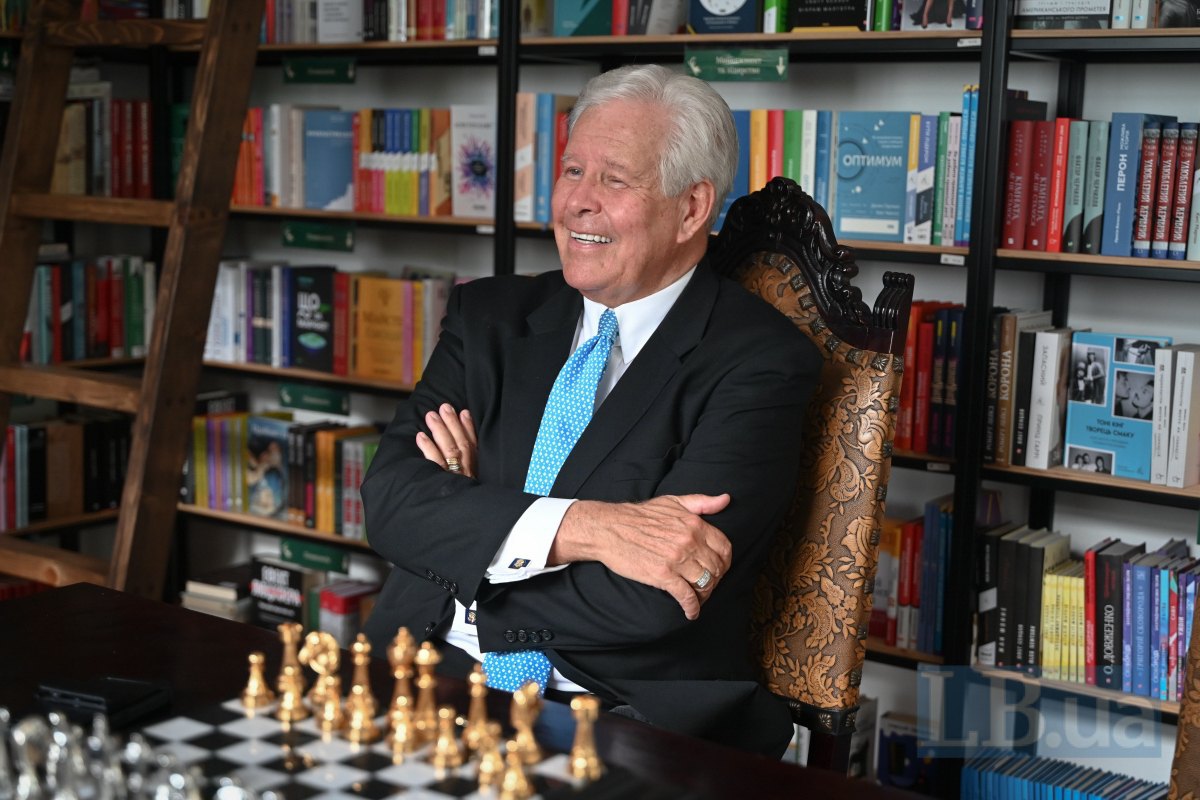
In conclusion, here is an interesting statistic from the New York Post: 51% of Republicans now believe that the US should provide more weapons and military support to Ukraine (compared to 30% six months earlier), and 84% of Republican voters have a negative opinion of Putin. What caused this change?
The idea that Trump will do what is best for the United States. Meanwhile, the left will do what they think is best for the world, while not valuing America, not loving America, but believing that America should bear the burden for everyone else.
Take Kamala Harris. She wanted to study the root causes of migration. I can tell you what they really are — socialism. The more socialism there is, the more poverty there is, the more people want to escape. It is not complicated. But they will not say that. Republicans are tired of the left creating all this chaos and then us having to spend time, blood and resources to fix it.
Donald Trump comes along and says: “We are not doing that. We are not going to rebuild Afghanistan. We are not going to spend billions of dollars in Iraq. We are going to help the Ukrainians, but we are not going to fight for them.” And Republicans say: “Okay, we are with you on that.” You will not bring the troops back here, you will just support them — not like Jimmy, Clinton or Biden. Biden could not even bring the people home. He is incompetent and things are not going well for him. And Republicans do not like that. But we like freedom. And that is why Ukrainians are fighting — and that should go down in history.
In the first month of the war, everyone left Ukraine. No one did anything. Even among Ukrainians, there was little support. These were individuals who took on what seemed to be one of the strongest armies in the world. And you saw how close they came. And what people did: they blew up bridges, stopped them and then caught them. Americans admire that. They are ready to help such people. But they are tired of Iraqis who blow something up, get money, then have dinner with you, and at night go back and bomb your house. We have already dealt with this, and it has grown old.
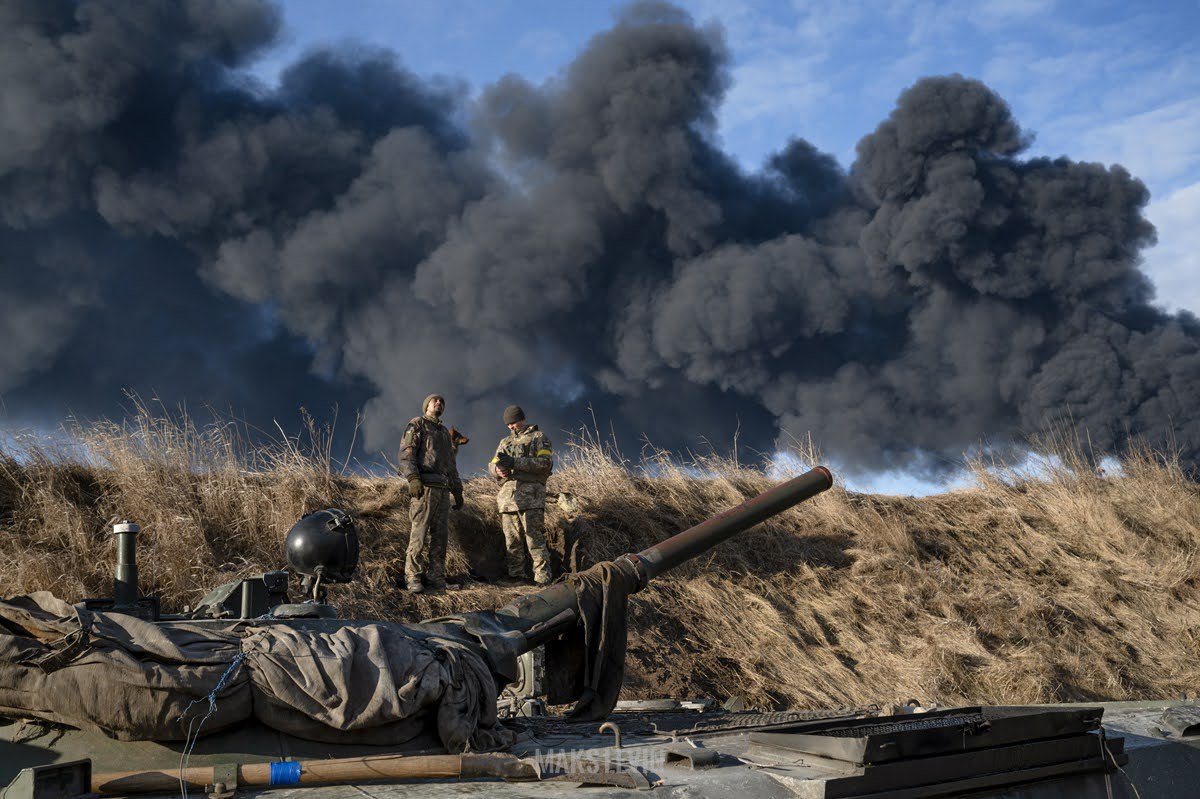
What do you think Ukraine’s place in the global security architecture will be after the war: a regional “middle power,” a NATO member, or a neutral country?
I will repeat: everything turned out the opposite of what Putin wanted. He did not want NATO on his doorstep, but that is what he got: Sweden and Finland joined. He staged this provocation with Ukraine, and the people said: “We want to be with NATO.” So now NATO is on his doorstep — something he did not want.
His army is destroyed. The whole world knows how incompetent it is. Not only the soldiers, but even worse — the leadership. His leadership is worthless, with equipment that is falling apart. And he is forced to hire Iranians to supply him with drones. Four years ago, everyone thought he was strong. And now Ukraine has shown that he is a paper tiger.
So where should Ukraine be in this new system? Perhaps the agreement will be as follows: Ukraine will not become a member of NATO. It will have the best of both worlds: all the support of NATO, but no obligations. It will receive security guarantees, foreign troops for protection as an insurance policy if anyone dares to invade, it will receive all the benefits without full membership, and at the same time it will not have to pay the contribution, which, at Trump’s insistence, is to increase from 2% of GDP (for NATO member countries – S.K.) to 5% of GDP. So, every day is getting better for Ukraine and worse for Russia.
